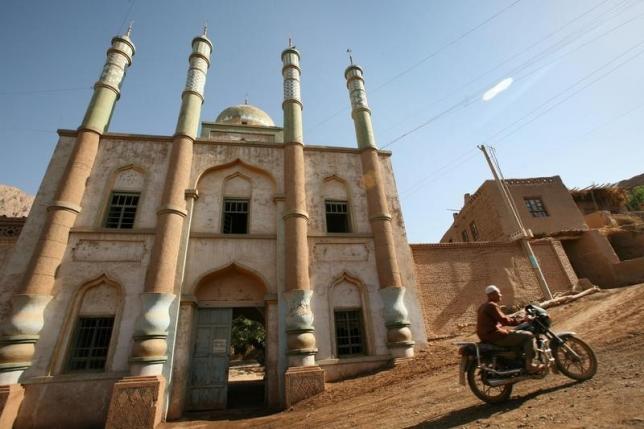Rights group criticizes China for mass DNA collection in Xinjiang
BEIJING: Chinese authorities have collected DNA and other biometric data from the whole population of the volatile western region of Xinjiang, Human Right Watch said on Wednesday, denouncing the campaign as a gross violation of international norms.
Hundreds of people have been killed in Xinjiang in the past few years in violence between Uighurs, a mostly Muslim people, and ethnic majority Han Chinese, which Beijing blames on Islamist militants.
The unrest has fueled a sweeping security crackdown there, including mass rallies by armed police, tough measures that rights advocates say restrict religious and cultural expression, and widespread surveillance.
Police are responsible for collecting pictures, fingerprints, iris scans and household registration information, while health authorities should collect DNA samples and blood type information as part of a “Physicals for All” program, the New York-based group said in a statement, citing government a document.
“The mandatory databanking of a whole population’s biodata, including DNA, is a gross violation of international human rights norms, and it’s even more disturbing if it is done surreptitiously, under the guise of a free health care program,” Human Rights Watch’s China director Sophie Richardson said.
According to the Xinjiang-wide plan posted online by the Aksu city government in July, main goals for the campaign include collecting the biometric data for all people between the age of 12 and 65, and verifying the region’s population for a database.
“Blood type information should be sent to the county-level police bureaus, and DNA blood cards should be sent to the county police bureaus for inspection,” the plan said.
Data for “priority individuals” should be collected regardless of age, it said, using a term the government has adopted to refer to people deemed a security risk.
Government workers must “earnestly safeguard the peoples’ legal rights”, plan said, but it made no mention of a need to inform people fully about the campaign or of any option for people to decline to take part.
Xinjiang officials could not be reached for comment.
Chinese Foreign Ministry spokesman Lu Kang, asked about the report by Human Rights Watch, accused the group of making “untrue” statements.
He told a regular news briefing in Beijing the general situation in the region was good.
Human Rights Watch cited an unidentified Xinjiang resident saying he feared being labelled with “political disloyalty” if he did not participate, and that he had not received any results from the health checks.
State media, reporting on the campaign checks, have said participation was voluntary.
The official Xinhua news agency in November cited health authorities as saying 18.8 million people in the region had received such physicals in 2017 for a 100 percent coverage rate.






